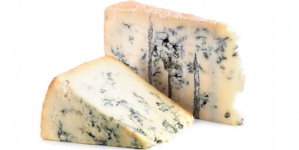-
WASHINGTON: India Now Second-Largest Source Country For New Citizens In US- Report - 12 hours ago
-
LONDON: Indian-Origin Teen In UK Gets “Life-Changing” Cancer Treatment - April 25, 2024
-
SILICON VALLEY: All About Pavan Davuluri, New Head Of Microsoft Windows - April 25, 2024
-
LONDON: UK’s India Gate To Commemorate Role Of Indian Soldiers From World Wars - April 24, 2024
-
HARARE: Shri Bramha Kumar appointed as the next Ambassador of India to the Republic of Zimbabwe - April 23, 2024
-
LONDON: Indian-Origin Principal Wins UK Legal Challenge Over School Prayer Ban - April 23, 2024
-
TORONTO: Indian-Origin Doctor Needs ₹ 2 Crore For Legal Fees. Elon Musk Responds - April 22, 2024
-
KINSHASA: India-Democratic Republic of Congo Foreign Office Consultations - April 21, 2024
-
LONDON: UK Court Allows Sale Of Nirav Modi’s Luxury London Apartment - April 21, 2024
-
TEHRAN: Travel advisory for Iran and Israel - April 20, 2024
AUCKLAND: Making sense of sleep nutrients on World Sleep Day
AUCKLAND: Sleep is where it all happens —
everything from repair, recovery to immunity building, blood pressure, heart
function, detoxification, hormonal balance, brain detoxification, healing,
muscle growth and so much more. Sleep is as important as food for us to survive
and so is the harmony between the two.
Sleep and nutrition have a
cyclical relationship; sleep quality can affect hunger cues and lead to weight
gain, while proper nutrition and timing of meals can improve sleep quality and
enhance overall health. Eating the right kind of nutrition can improve this
relationship and help produce more nights of restorative sleep.
The equation
Eating habits can impact sleep quality primarily by influencing
neurotransmitters, hormones, and digestion. Neurotransmitters and hormones help
control our sleep patterns, but they also influence all of the body’s natural
processes.
Not only is it important to pay
attention to what we eat before bed, but also when we eat during the day. Most
evidence suggests that a consistent diet, eating the bulk of food earlier in
the day, and avoiding eating late in the evening can improve sleep quality.
“Eating heavy or large meals close to bedtime can disrupt sleep by increasing
acid reflux symptoms and causing indigestion.
The right strategy would be to
maintain a three hour gap between your dinner and bedtime,” says Manjari
Chandra, Consultant Therapeutic and Functional Nutrition.
Pack in the right nutrients
A number of nutritional factors influence sleep, including melatonin,
tryptophan, a high glycemic index diet before bedtime, and maintenance of a
balanced and healthy diet. “An amino acid called tryptophan is directly
involved in production of the hormone melatonin which helps in inducing sleep.
So consuming foods that are rich
in tryptophan — nuts, dairy, chicken, eggs — will help in increasing quality
sleep,” says dietician Kamal Yadav, Max Super Specialty Hospital. Work on your
sleep hormones. “Fatty fish is a good source of vitamin D and omega-3 FAs,
nutrients important for the regulation of serotonin and therefore sleep
regulation.
Almonds contain high doses of
melatonin and helps regulate the sleep and wake cycle,” enlightens Chandra.
Magnesium also increases levels of GABA, the neurotransmitter that helps reduce
stress, promote relaxation, and improve sleep. Along with B6, magnesium also
helps the body to produce serotonin. Eat dry fruits, bananas, green leafy
vegetables, oil seeds.
Foods that are a big NO
“Foods that are very high in carbohydrates like sugar or energy drinks,
foods high in saturated fatty acids like bakery products and high protein foods
that take longer to digest have been shown to increase the chances of disturbed
and fragmented sleep,” says Yadav. Steer clear of stimulants like caffeine to
sleep well.
The stimulating effects of
caffeine may impact the body’s Circadian rhythm, making it harder to fall
asleep, remain asleep, and enter deep sleep cycles. The same holds true for
alcohol, a depressant. It helps you fall asleep fast but prevents you from
entering deep, restorative sleep.
Can poor sleep sap nutrients?
Sleep and the circadian system are strong regulators of immunological
processes. Just as sleep contributes to the body’s Circadian rhythm, so does
your diet. Eating close to the same time each day and making sure to have a
healthy balance of nutrients will aid in aligning your body with its natural
rhythm, which might in turn improve sleep. “On the other hand, a recurring lack
of sleep or erratic sleep timings can lead to latent chronic inflammation in
the gut and lead to the underproduction of digestive enzymes.
This leads to malabsorption of
micronutrients causing a cascade of health conditions,” warns Chandra.
























